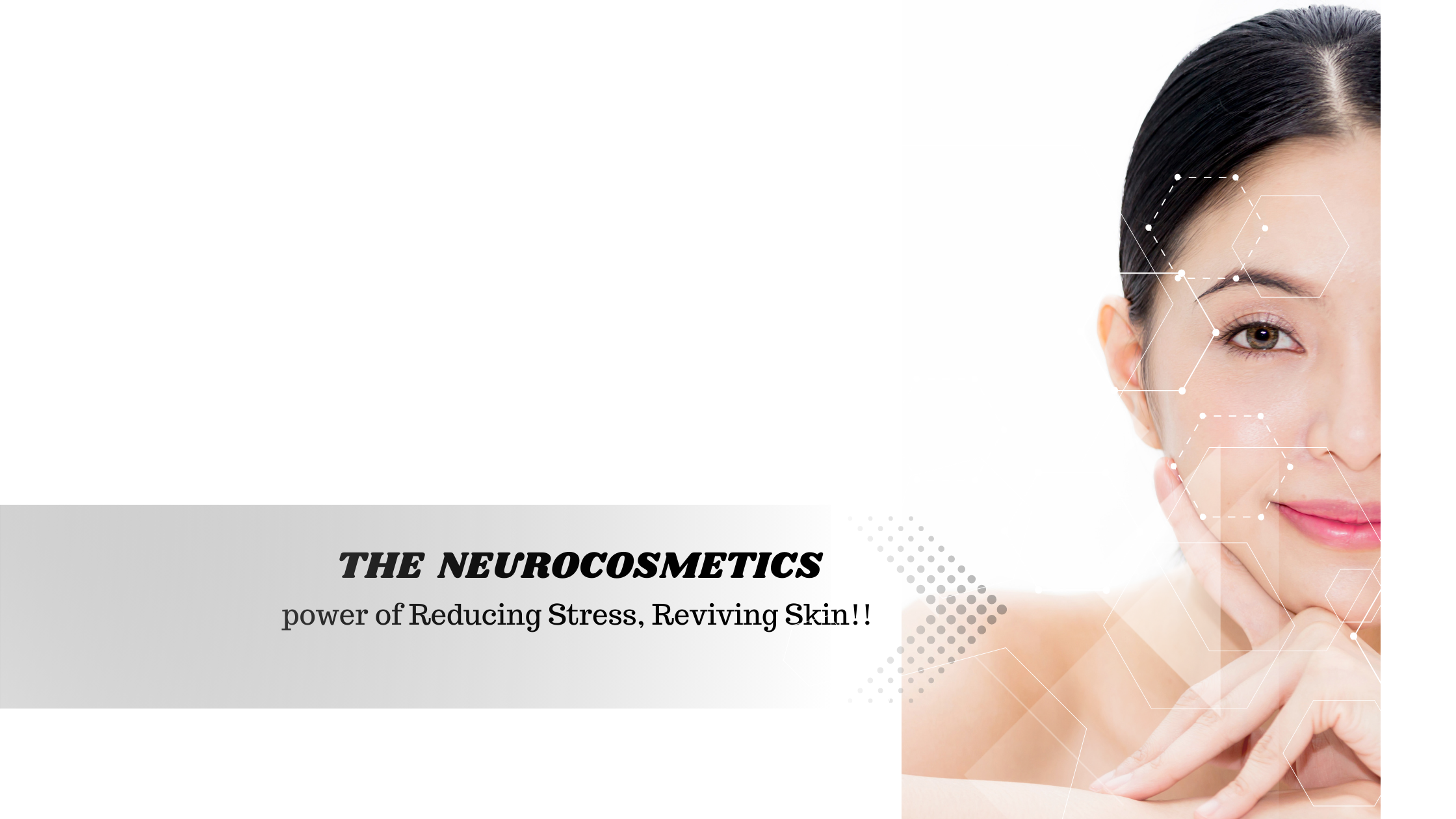In our fast-paced modern world, stress has become an inevitable part of life, affecting not only our mental and physical well-being but also taking a significant toll on our skin. The emerging field of neurocosmetics offers a promising solution by targeting the intricate relationship between stress and skin health. This article delves into the details of how stress impacts our skin and how neurocosmetics can play a crucial role in mitigating these effects.
The Impact of Stress on Skin Health
Stress is a complex physiological response to various external and psychological factors that disrupt our body’s homeostasis. In today’s world, stressors such as pollution, UV radiation, insufficient sleep, social media pressures, and work-related anxieties are ever-present. These stressors can lead to a cascade of negative effects on our skin, making it more prone to conditions like acne, psoriasis, dermatitis, and even premature aging.
One of the key players in the body’s stress response is cortisol, often referred to as the stress hormone. When we experience stress, our brain triggers the release of cortisol through the hypothalamus-pituitary-adrenal (HPA) axis. Interestingly, because the skin and brain share a common embryonic origin, skin cells are also capable of producing cortisol in response to external stress factors.
The Stress Pathway and Cortisol's Role
Cortisol plays a pivotal role in the body’s response to stress. However, prolonged exposure to elevated cortisol levels can lead to a breakdown of skin homeostasis, causing a variety of detrimental effects, including:
Glycation of Skin Proteins: Increased blood sugar levels due to cortisol promote glycation, which damages collagen and elastin. This accelerates skin aging and reduces the skin's ability to recover its elasticity and firmness.
Degradation of Dermal Proteins: Cortisol’s catabolic effects lead to the breakdown of essential proteins in the skin, weakening its structure and resilience.
Skin Dryness: Elevated cortisol levels reduce the production of hyaluronic acid, a natural moisturizer in our skin, leading to increased transepidermal water loss (TEWL) and skin dehydration.
Accelerated Aging: The combined effects of protein degradation, reduced elasticity, and skin dryness contribute to the formation of fine lines, wrinkles, and thinning skin.
Studies have also shown that high cortisol levels can impair the skin’s barrier function, making it more susceptible to environmental damage and reducing its ability to repair itself. For instance, elevated cortisol disrupts epidermal cohesion, which is crucial for maintaining skin integrity.
The Neurocosmetic Approach to Rebalancing Cortisol Levels
Neurocosmetics represent a new frontier in skincare, aiming to modulate the effects of stress on the skin by interacting with the skin’s nervous system. Unlike traditional cosmetics, neurocosmetics are designed to influence the production and release of neuromediators—chemical messengers that communicate between the skin and the brain.
By targeting these neuromediators, neurocosmetics can help regulate the skin’s response to stress, reduce inflammation, and promote a healthier, more balanced complexion. For example, some neurocosmetic ingredients are designed to inhibit the enzyme 11β-hydroxysteroid dehydrogenase type 1 (11β-HSD1), which converts inactive cortisone into active cortisol. By doing so, these ingredients can reduce the production of cortisol in the skin, mitigating its harmful effects.

Beyond Anti-Aging: The Future of Neurocosmetics
While neurocosmetics are often associated with anti-aging products, their potential goes far beyond that. These products offer a holistic approach to skincare by addressing both the physical and emotional aspects of skin health. By targeting the skin-brain connection, neurocosmetics can help manage a wide range of skin conditions, from acne and rosacea to eczema and dermatitis.
As research in this field continues to grow, we can expect to see even more advanced neurocosmetic products that address not only skin aging but also the impact of environmental stressors, pollution, and lifestyle factors on the skin. The future of skincare lies in the ability to address skin health at a deeper, neurological level.
Innovative Neurocosmetic Ingredients
Several neurocosmetic ingredients have been developed to combat the effects of stress on the skin. These ingredients include:
Botox-like Peptides: These peptides work by relaxing facial muscles, reducing the appearance of wrinkles and fine lines caused by stress-related muscle tension.
Plant Extracts: Ingredients like Rhodiola rosea root extract are known for their neuro-modulatory effects, helping the skin resist stress and maintain its health and appearance.
Cooling Agents: Ingredients like menthol derivatives act on the skin’s nerve endings, providing a soothing and calming effect that can help alleviate stress-induced discomfort.
Conclusion: Embrace the Neurocosmetic Revolution
The rise of neurocosmetics marks an exciting new chapter in skincare. By bridging the gap between the mind and the skin, these products provide a comprehensive approach to beauty and wellness. Whether you're looking to reduce the signs of aging, manage stress-induced skin issues, or simply achieve healthier, more radiant skin, neurocosmetics offer a promising solution that goes beyond traditional skincare.
As we continue to learn more about the skin-brain connection, neurocosmetics will undoubtedly play a pivotal role in helping us achieve our skincare goals—both inside and out.
Reference
https://doi.org/10.3390/cosmetics8030066
https://www.academia.edu/download/116527683/DOBOS_HPC2_2024.pdf

